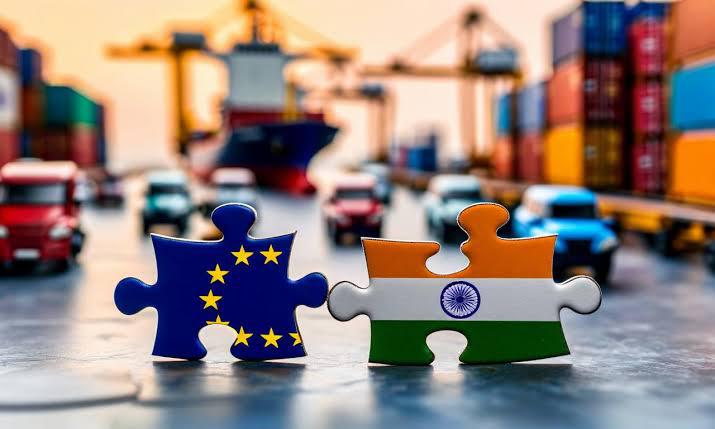The global energy transition presents developing nations with a fundamental challenge: how to pursue necessary climate action while ensuring that international cooperation frameworks do not perpetuate historical inequalities or compromise national development priorities. India’s experience in this transition offers valuable insights into how large developing economies can simultaneously lead by example in renewable energy deployment while advocating for more equitable burden-sharing arrangements in international climate policy. The country’s trajectory reveals both the potential for developing a national climate leadership and the persistent structural challenges that must be addressed for truly effective global climate cooperation.

India’s renewable energy achievements represent one of the most significant clean energy success stories of recent years, demonstrating the country’s capacity to scale sustainable technologies rapidly while maintaining economic growth. The country added a record 29.52 GW of renewable energy capacity during the year, bringing the total installed renewable energy capacity to 220.10 GW as of 31st March 2025, reflecting sustained policy commitment and effective implementation across multiple renewable energy sectors. This expansion has been particularly remarkable in solar power, which has witnessed a 30-fold surge in adoption, with installed capacity increasing from 2.5 GW in 2014 to about 94.16 GW as of November 2024, indicating India’s ability to create enabling conditions for rapid technology adoption at an unprecedented scale.
These achievements are particularly noteworthy given India’s development context and energy security requirements. As of October 2024, 44.72% of the total power installed capacity is from non-fossil-based sources, a transition accomplished while ensuring energy access for the world’s largest population and supporting one of the world’s fastest-growing economies.
The financing requirements for India’s climate commitments, however, highlight the broader challenges facing developing nations in the global energy transition. India alone needs funding of around $160 Billion a year to meet its climate commitments made at COP26 in 2021, a figure that underscores the scale of resources required for meaningful climate action in large developing economies. This financing gap has become central to international climate negotiations, with India consistently arguing that equitable climate action requires corresponding financial and technological support from developed nations, particularly given historical emissions patterns and differential economic capacity.
Recent international climate negotiations have illustrated the tensions surrounding climate finance commitments and their adequacy. At COP29 in Baku, developed countries pledged $300 billion for the New Collective Quantified Goal (NCQG) by 2035, a commitment that fell significantly short of developing country expectations and needs assessments. India’s response to these negotiations reflected broader developing country concerns about the gap between climate finance rhetoric and reality, with the country calling for developed countries to provide at least USD 1 trillion per year from 2025, composed primarily of grants and concessional finance rather than market-rate loans that could exacerbate debt burdens.
India’s emphasis on grant-based climate finance reflects legitimate concerns about the structure of international climate cooperation and its potential to create new forms of dependency. The country’s insistence on establishing accountability mechanisms for climate finance commitments stems from experience with previous international commitments that have been inadequately fulfilled, creating skepticism about whether current pledges will translate into actual resource flows. This advocacy for reformed climate finance mechanisms represents a broader developing country perspective on the need for more equitable international climate cooperation.
The concept of “climate colonialism” that has emerged in international climate discourse reflects these structural concerns about how climate policies might reproduce historical inequalities. While this framing may be contested, it highlights legitimate questions about whether international climate cooperation frameworks adequately respect national sovereignty and development priorities or whether they impose external conditionalities that constrain policy autonomy in developing countries. India’s advocacy in this area has been important in maintaining space for alternative approaches to climate action that prioritize national circumstances and development strategies.
India’s domestic energy transition has also demonstrated the potential for developing indigenous technological capabilities and supply chains, reducing dependence on traditional technology transfer models. The country’s success in scaling solar manufacturing, developing cost-competitive renewable energy technologies, and creating domestic markets for clean energy certificates indicates that developing nations can pursue climate action through multiple pathways rather than relying solely on Northern technologies and financing. The Indian Energy Exchange traded 1.52 million RECs, representing a 285% year-over-year increase, while ESCs have saved more than 106 million tonnes of CO₂ emissions, reflecting the emergence of robust domestic markets that are driving efficiency improvements and renewable energy adoption.
The international implications of India’s approach extend beyond the country’s borders to influence broader patterns of South-South cooperation and developing country strategies in climate negotiations. India’s emphasis on technology sharing with other developing nations and its advocacy for reformed international climate governance structures have contributed to more diverse voices in global climate policy discussions. This has been particularly important in ensuring that climate policies reflect the needs and priorities of developing countries rather than being dominated exclusively by developed country perspectives.
India’s role in international climate negotiations has also highlighted the importance of addressing historical responsibility and differential capacity in climate policy frameworks. The country’s consistent advocacy for common but differentiated responsibilities has been crucial in maintaining recognition that climate action should be scaled according to national circumstances, historical emissions, and economic capacity. This principled stance has helped preserve space for developing country perspectives in international climate governance while supporting ambitious global climate action.
The path forward requires continued engagement between developed and developing countries to create climate cooperation frameworks that are both ambitious and equitable. India’s experience suggests that such frameworks must address legitimate concerns about burden-sharing, technology transfer, and climate finance while supporting the kind of rapid decarbonization that climate science demands.





